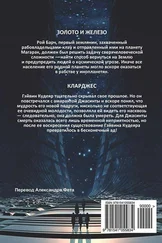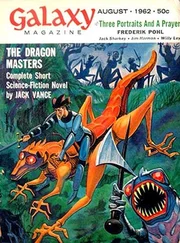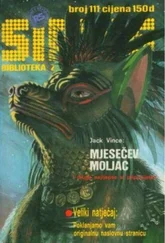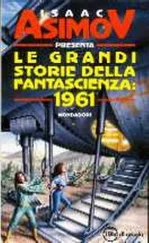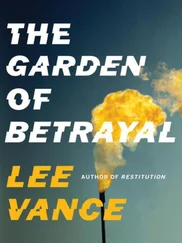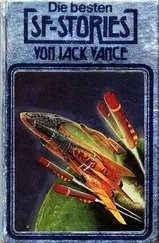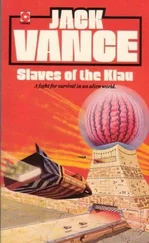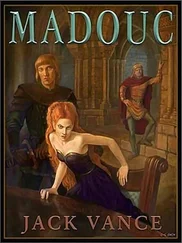Jack Vance - Suldrun's Garden
Здесь есть возможность читать онлайн «Jack Vance - Suldrun's Garden» весь текст электронной книги совершенно бесплатно (целиком полную версию без сокращений). В некоторых случаях можно слушать аудио, скачать через торрент в формате fb2 и присутствует краткое содержание. Жанр: Фантастика и фэнтези, на английском языке. Описание произведения, (предисловие) а так же отзывы посетителей доступны на портале библиотеки ЛибКат.
- Название:Suldrun's Garden
- Автор:
- Жанр:
- Год:неизвестен
- ISBN:нет данных
- Рейтинг книги:3 / 5. Голосов: 1
-
Избранное:Добавить в избранное
- Отзывы:
-
Ваша оценка:
- 60
- 1
- 2
- 3
- 4
- 5
Suldrun's Garden: краткое содержание, описание и аннотация
Предлагаем к чтению аннотацию, описание, краткое содержание или предисловие (зависит от того, что написал сам автор книги «Suldrun's Garden»). Если вы не нашли необходимую информацию о книге — напишите в комментариях, мы постараемся отыскать её.
Suldrun's Garden — читать онлайн бесплатно полную книгу (весь текст) целиком
Ниже представлен текст книги, разбитый по страницам. Система сохранения места последней прочитанной страницы, позволяет с удобством читать онлайн бесплатно книгу «Suldrun's Garden», без необходимости каждый раз заново искать на чём Вы остановились. Поставьте закладку, и сможете в любой момент перейти на страницу, на которой закончили чтение.
Интервал:
Закладка:
GLOSSARY I IRELAND AND THE ELDER ISLES
Few definite facts are related of Partholon, a rebel prince of Dahaut, who after killing his father fled to Leinster. The Fomoire derived from North Ulfland, then known as Fomoiry. King Nemed, arriving with his folk from Norway, fought three great battles with the Fomoire near Donegal. The Ska, as the Neme-dians called themselves, were fierce warriors; the Fomoire, defeated twice, gained final victory only through the magic of three one-legged witches: Cuch, Gadish and Fehor: a battle in which Nemed was killed.
The Ska had fought with honor and valor; even in defeat they commanded the respect of the victors, so that they were allowed a year and a day to make their black ships ready for an onward voyage. At length, after three weeks of banquets, games, songs and the drinking of mead, they set sail from Ireland with Starn, first son of Nemed, as their king. Starn led the surviving Ska south to Skaghane, northernmost of the Hesperians, at the western verge of the Elder Isles.
Nemed's second son, Fergus, sailed to Amorica and assembled an army of a Celtic people known as the Firbolg, which he led back to Ireland. Along the way the Firbolg put into Fflaw at the tip of Wysrod, but so vast an army came to confront them that they left without a battle and continued to Ireland, where they became preeminent across the land.
A century later the Tuatha de Danaan, after an epic migration from central Europe through Asia Minor, Sicily and Spain, crossed the Cantabrian Gulf to the Elder Isles, and established themselves in Dascinet, Troicinet and Lyonesse. Sixty years later the Tuatha split into two factions, one of which moved on to Ireland, to fight the Firbolg at the First and Second Battles of Mag Tuired.
The second Celtic surge which propelled the Milesians into Ireland and the Brythni into Britain bypassed the Elder Isles_ C s nonethelessLgrated into Hybras in sman groups and and established the Celtic kingdom Godelia.
GLOSSARY II: THE FAIRIES
Fairies are halflings, like trolls, falloys, ogres and goblins, and unlike merrihews, sandestins, quists and darklings. Merrihews and sandestins both may manifest human semblance, but the occasion is one of caprice and always fugitive. Quists are always as they are, and darklings prefer only to hint of their presence.
Fairies, like the other halflings, are functionally hybrids, with varying proportions of earth-stuff. With the passage of time the proportion of earth-stuff increases, if only through the ingestion of air and water, though occasional coition of man and halfling hastens the process. As the halfling becomes "heavy" with earthstuff it converges toward humanity and loses some or all of its magic.
The "heavy" fairy is abusively ejected from the shee as a boor and lummox, to wander the countryside and eventually merge into the human community, where it lives disconsolately and only rarely exercises its fading magic. The offspring of these creatures are peculiarly sensitive to magic, and often become witches or wizards: so with all the magicians of the Elder Isles.
Slowly, slowly the halflings dwindle; the shees grow dark, and the halfling life-stuff dissipates into the human race. Every person alive inherits more or less halfling-stuff from thousands of quiet infusions. In human inter-relationships the presence of this quality is a matter of general knowledge, but sensed sub-liminally and seldom accurately identified.
The fairy of the shee often seems childlike by reason of intemperate acts. His character varies of course from individual to individual, but is always capricious and often cruel.
Similarly, the fairy's sympathies are quickly aroused, whereupon he becomes extravagantly generous. The fairy is inclined to be boastful; he is given to dramatic postures and quick sulks. He is sensitive in regard to his self-knage and cannot tolerate ridicule, which prompts him to a prancing demonstrative fury. He admires beauty and also grotesque oddity in the same degree; to the fairy these are equivalent attributes.
The fairy is erotically unpredictable and often remarkably promiscuous. Charm, youth, beauty are not cogent considerations; above all the fairy craves novelty. His attachments are seldom lasting, in common with all his moodsT He quickly shifts from joy to woe; from wrath through hysteria to laughter, or any of a dozen other affections unknown to the more stolid human race.
Fairies love tricks. Woe to the giant or ogre the fairies decide to molest! They give him no peace; his own magic is of a gross sort, easily evaded. The fairies torment him with cruel glee until he hides in his den, or castle.
Fairies are great musicians and use a hundred quaint instruments, some of which, like fiddles, bagpipes and flutes have been adopted by men. Sometimes they play jigs and knockabouts to put wings on the heels; sometimes mournful tunes by moonlight, which once heard may never be forgotten. For processions and investitures the musicians play noble harmonies of great complexity, using themes beyond the human understanding.
Fairies are jealous and impatient, and intolerant of intrusion. A
boy or girl innocently trespassing upon a fairy meadow might be cruelly whipped with hazel twigs. On the Sther hand, if the fairies were somnolent the child might be ignored, or even showered with a rain of gold coins, since the fairies enjoy confounding men and women with sudden fortune, no less than with sudden disaster.
GLOSSARY III: THE SKA
For ten thousand years or longer the Ska maintained racial purity and continuity of tradition, using the same language so conservatively that the most ancient chronicles, both oral and written, were intelligible at all times across the years without archaic flavor. Their myths recalled migrations north behind the Wurm glaciers; their oldest bestiaries included mastodons, cave bears and dire wolves. Their sagas celebrated battles with cannibal Neanderthals, with a culminating victory of extermination where the red blood ran deep over the ice of Lake Ko (in Denmark).
They followed the glaciers north into the virgin wilderness of Scandinavia, which they claimed as their homeland. Here they learned to smelt bog-iron, forge tools, weapons, and structural pieces; they built seagoing boats and guided themselves by the compass.
About 2500 B.C. an Aryan horde, the Ur-Goths, migrated north into Scandinavia, driving the relatively civilized Ska west, to the fringes of Norway and eventually into the sea.
The remnants of the Ska descended upon Ireland and entered Irish myth as "Nemedians": the Sons of Nemed. The Ur-Goths adopted the Ska folkways, and became ancestors to the various Gothic peoples, most notably the Germans and the Vikings.
From Fomoiry (North Ulfland) the Fomoire migrated into Ireland, and engaged the Ska in three great battles, forcing them to depart Ireland. This time the Ska moved south to Skaghane, which they vowed never to leave. Molded by bitter adversity, they had become a race of aristocratic warriors and considered themselves actively at war with all the rest of the world. All other peoples they deemed subhuman and only marginally superior to animals. With each other they were fair, mild and reasonable; with others they were dispassionately pitiless: this philosophy became their tool for survival.
Интервал:
Закладка:
Похожие книги на «Suldrun's Garden»
Представляем Вашему вниманию похожие книги на «Suldrun's Garden» списком для выбора. Мы отобрали схожую по названию и смыслу литературу в надежде предоставить читателям больше вариантов отыскать новые, интересные, ещё непрочитанные произведения.
Обсуждение, отзывы о книге «Suldrun's Garden» и просто собственные мнения читателей. Оставьте ваши комментарии, напишите, что Вы думаете о произведении, его смысле или главных героях. Укажите что конкретно понравилось, а что нет, и почему Вы так считаете.

